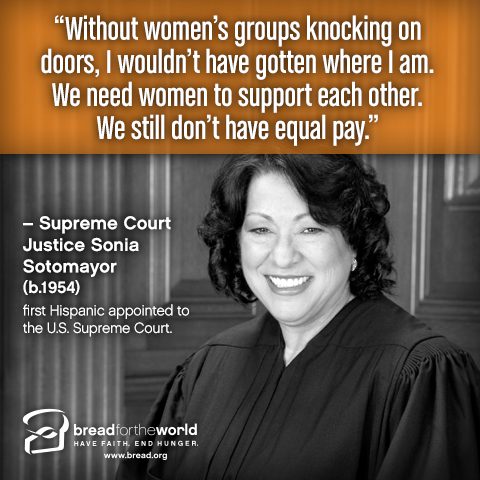By Jennifer Gonzalez
In honor of Women’s History Month and International Women’s Day, Bread Blog, Institute Notes, and Bread for the World’s social media platforms are celebrating the ingenuity, fortitude, and spirit of women during the month of March.
Supreme Court Justice Sonia Sotomayor holds a distinctive place in our nation’s history as the first Hispanic appointed to the U.S. Supreme Court. She is also only the third woman to serve in the nation’s highest court.
Sotomayor has credited her mother as her “life inspiration.” It a reminder of how important it is for women to support each other, whether it’s our own mother, a co-worker, a college mentor, or a best friend.
The 2015 Hunger Report When Women Flourish… We Can End Hunger notes that the power of women’s “collective voice” is essential to solving the world’s many social ills such as persistent poverty and hunger. For example, the report highlights the work of Bread for the World’s Women of Faith for the 1,000 Days Movement, which is focused on the importance of nutrition for pregnant women and young children, especially during the 1,000-day window (from pregnancy to a child’s second birthday).
For more information on the integral role women play in ending hunger and poverty, make sure to read When Women Flourish… We Can End Hunger and also visit Bread Blog.
Jennifer Gonzalez is the associate online editor at Bread for the World.



